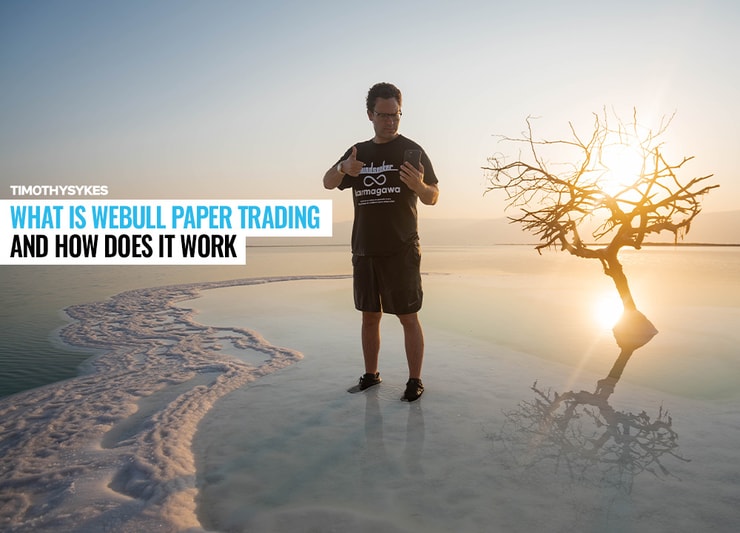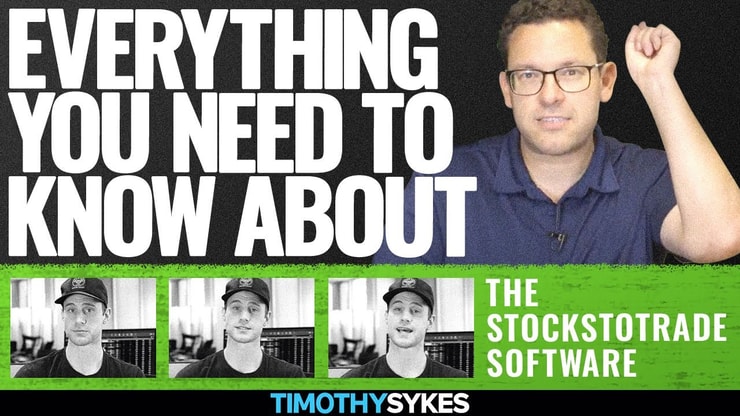Webull Paper Trading is a feature that allows investors to practice trading with virtual money. It’s a risk-free way to learn the ropes of the stock market, test strategies, and gain experience without risking real funds. In this article, we’ll dive into the ins and outs of Webull Paper Trading, from setting up an account to the pros and cons.
Table of Contents
- 1 What Is Webull Paper Trading?
- 2 Benefits of Webull Paper Trading
- 3 Setting Up a Webull Paper Trading Account
- 4 How To Get Started With Webull Paper Trading?
- 5 Using Webull for Paper Trading
- 6 How To Paper Trade On Webull
- 7 Pros and Cons of Using Webull for Paper Trading
- 8 Which Securities are Available for Webull Paper Trading?
- 9 Safety Tips When Using Webull For Paper Trades
- 10 Webull Commissions and Fees
- 11 Is a Webull Account Right for You?
- 12 Key Takeaways
- 13 FAQs:
- 13.1 Can I Switch from Paper Trading to Real Money Trading on Webull?
- 13.2 Are There Any Limitations on the Duration of Paper Trading on Webull?
- 13.3 Can I Use Webull’s Paper Trading Feature on Mobile Devices?
- 13.4 What Investments and Services Does Webull Offer for Paper Trading?
- 13.5 How Is Webull’s Content and Articles Relevant to Paper Trading?
- 13.6 What Products Can You Trade on Webull’s Paper Trading Platform?
- 13.7 How Do Insurance Policy and Accounts Relate to Webull Paper Trading?
- 13.8 What Level of Analysis Can You Conduct in Webull’s Paper Trading?
- 13.9 What Claims and Recommendations Should You Watch For?
- 13.10 What Rights and Opportunities Do You Have with Brokers on Webull’s Online Platform?
What Is Webull Paper Trading?

2025 Millionaire Media, LLCWebull Paper Trading is essentially a simulated trading environment. It offers a demo account where you can trade stocks, ETFs, and options without risking real money. Just like in my early trading days, it’s a valuable tool for beginners to get their feet wet and for experienced traders to test new strategies.
How Does It Work?
The platform mimics real-time market data, allowing you to make trades as if you were using real money. You get a set amount of virtual funds to start with, and you can monitor your performance over time. It’s a fantastic way to practice without the fear of losses, something I always emphasize to my students.
Benefits of Webull Paper Trading
Webull Paper Trading offers numerous benefits, whether you’re a newbie or a seasoned trader. I’ve seen countless traders benefit from paper trading before diving into the real thing.
Webull Paper Trading Benefits For Beginners
For beginners, it’s a low-risk environment to understand trading options, market data, and how to analyze stocks. You can practice buying and selling shares, all while gaining valuable experience.
More Breaking News
- Sandstorm Gold’s Latest Moves: Time to Jump In?
- Riot Platforms Surges: What’s Fueling The Momentum?
- Innoviz Technologies Propels Forward with Strategic Partnerships and LiDAR Developments
Webull Paper Trading Benefits For Professionals
Even for professionals like me, paper trading is a great way to test new trading strategies. You can experiment with different types of orders and securities without risking your hard-earned money.
Setting Up a Webull Paper Trading Account
Setting up a Webull Paper Trading account is straightforward.
First: do your due diligence and see how Webull stacks up against other platforms. I’ve got a detailed breakdown comparing Thinkorswim and Webull that could help you make a more informed choice. It’s crucial to know your tools inside and out. Don’t miss this chance to compare; check out my comprehensive guide.
While you’re checking out the competition, be sure to give my favorite trading platform a try — StocksToTrade.
Creating an Account
First, you’ll need to create an account. This involves providing some basic information and verifying your identity. Just like opening a real trading account, you’ll need to go through some standard procedures.
Funding Your Account
Technically, you’re not funding your paper trading account with real money. Instead, Webull provides you with a set amount of virtual funds. It’s similar to the initial deposit you’d make in a real account, but without the financial risk.
Accessing the Platform
Once your account is set up, you can access the Webull Paper Trading platform either via their desktop app or mobile app. Both platforms offer a range of tools and indicators to help you make informed trades.
How To Get Started With Webull Paper Trading?

2025 Millionaire Media, LLCGetting started with Webull Paper Trading is a straightforward process. I’ve guided many students through this, and it’s easier than you think.
Step 1: Webull Account Opening
First, you’ll need to open a Webull account. This involves filling out some forms and providing identification. It’s a standard process, similar to what I went through when I first started trading.
Step 2: Choose Your Trading Platform
Webull offers a desktop and mobile platform. Choose the one that suits your trading style. I often tell my clients that the platform you choose can make a significant difference in your trading experience.
Step 3: Access Paper Trading Account
Once your account is verified, you can access the paper trading feature. You’ll be given virtual funds to start trading. It’s a great way to practice, just like I did when I was learning the ropes.
Using Webull for Paper Trading
Webull’s paper trading feature is more than just a playground; it’s a comprehensive training ground. I’ve always said that the tools you use can make or break your trading career, and Webull offers some of the best.
Types of Orders You Can Place with Webull
You can place a variety of orders, including market, limit, and stop orders. This mimics the real trading environment, allowing you to get a feel for different trading strategies.
How To Place a Trade on Webull’s Platform
Placing a trade is simple. Select the stock or ETF you’re interested in, choose the type of order, and execute. It’s similar to how I place trades in real-time, offering a realistic experience.
Research Tools Available on Webull for Paper Traders
Webull offers robust research tools, including real-time market data, charts, and indicators. These tools are essential for making informed trades, something I stress in all my teachings.
How To Paper Trade On Webull

2025 Millionaire Media, LLCSo you’re ready to start paper trading on Webull? Good, because practice is the cornerstone of any successful trading strategy.
Choose Your Trading Strategy
First, decide on a trading strategy. Whether it’s day trading, swing trading, or long-term investing, having a strategy is crucial. Like I’ve always said, “Plan the trade and trade the plan.”
Placing Orders
Once you’ve chosen a strategy, you can start placing orders. Use the virtual funds in your paper trading account to buy and sell stocks, just like you would in a real account.
Consider Real Money Trading
After you’ve gotten the hang of paper trading, you might consider switching to real money trading. But remember, the risks are real too. Always use risk management strategies, like setting stop-loss orders, to protect your investment.
Pros and Cons of Using Webull for Paper Trading
Every platform has its ups and downs, and Webull is no exception. I’ve used multiple platforms throughout my trading career, and each has its unique features and limitations.
Pros of Using Webull for Paper Trading
Webull offers a user-friendly interface, a wide range of research tools, and zero commissions on trades. It’s an excellent platform for both beginners and experienced traders to hone their skills.
Cons of Using Webull for Paper Trading
On the flip side, the platform might seem overwhelming for absolute beginners. Also, it’s worth noting that paper trading can’t entirely replicate the emotional pressures of real trading.
Technical Indicators & Educational Resources Available Through Webull
Webull offers a variety of technical indicators and educational resources. These can be invaluable for traders looking to deepen their understanding of the markets.
If you’re an advanced trader, you might want to check out the competition. In the service of that, here’s a side-by-side comparison of TradeStation and Thinkorswim. I’ve dissected the pros and cons of each to help you decide which platform suits your trading style best. Check out the full comparison here.
Which Securities are Available for Webull Paper Trading?

2025 Millionaire Media, LLCWebull Paper Trading isn’t just limited to stocks; you can also trade ETFs and options. This diversity allows you to practice various trading strategies, something I always recommend to my students.
Fractional shares are also an option. Always check the availability of your preferred shares — other platforms, like TD Ameritrade, may have different options. Check out my deep dive into fractional share trading on TD Ameritrade to learn more.
Safety Tips When Using Webull For Paper Trades
Safety should always be a priority when trading, even in a simulated environment. Always remember to log out of your account when you’re done, and keep your login information secure.
Webull Commissions and Fees
One of the best things about Webull is that it offers commission-free trading. However, it’s essential to read the fine print as there might be other fees, like margin fees, that could apply.
Is a Webull Account Right for You?
Webull is an excellent platform for both beginner and experienced traders. If you’re serious about trading, Webull’s paper trading feature is a fantastic place to start. It’s a platform I often recommend, given its robust features and user-friendly interface.
Key Takeaways

2025 Millionaire Media, LLCWebull Paper Trading is an invaluable tool for anyone looking to get into trading or refine their strategies. It offers a risk-free environment to practice, robust research tools, and a variety of securities to trade.
It isn’t a silver bullet for your trading plan — but Webull Paper Trading is one of the many topics you should learn as part of your trading education!
Trading isn’t rocket science. It’s a skill you build and work on like any other. Trading has changed my life, and I think this way of life should be open to more people…
I’ve built my Trading Challenge to pass on the things I had to learn for myself. It’s the kind of community that I wish I had when I was starting out.
We don’t accept everyone. If you’re up for the challenge — I want to hear from you.
Apply to the Trading Challenge here.
Trading is a battlefield. The more knowledge you have, the better prepared you’ll be.
Have you used Webull Paper Trading? Let me know in the comments — I love hearing from my readers!
FAQs:
Can I Switch from Paper Trading to Real Money Trading on Webull?
Yes, switching from paper trading to real money trading is straightforward. However, be prepared for the emotional and financial risks involved in real trading.
Are There Any Limitations on the Duration of Paper Trading on Webull?
No, there are no time limitations on how long you can use the paper trading feature. It’s a great way to continually refine your strategies.
Can I Use Webull’s Paper Trading Feature on Mobile Devices?
Absolutely, Webull’s paper trading feature is available on both desktop and mobile platforms, offering flexibility for traders on the go.
What Investments and Services Does Webull Offer for Paper Trading?
Webull offers a variety of investments and services that simulate the real stock market, from options trading to commodities. The platform allows customers to experiment with these services in a risk-free environment through paper trading.
How Is Webull’s Content and Articles Relevant to Paper Trading?
Webull’s content, particularly articles focused on market analysis and advice, can provide valuable insights for your paper trading exercises. This educational content allows you to understand different investment strategies and make better-informed decisions.
What Products Can You Trade on Webull’s Paper Trading Platform?
In Webull’s paper trading platform, you can trade a range of products, from equities to options trading and commodities. This gives customers a chance to test their potential profit scenarios and market analysis techniques without real-world consequences.
How Do Insurance Policy and Accounts Relate to Webull Paper Trading?
Webull offers a secure trading environment, backed by an insurance policy that protects your simulated accounts. While paper trading accounts don’t involve real money, the insurance policy ensures the security and integrity of your virtual trading data.
What Level of Analysis Can You Conduct in Webull’s Paper Trading?
With Webull, you can engage in a high level of analysis, utilizing various tools and features to examine market trends, results, and potential trades. Such analytical depth provides a realistic experience for those looking to eventually trade on a live exchange.
What Claims and Recommendations Should You Watch For?
While using Webull’s paper trading, you may come across various claims and recommendations, either from the platform’s content or other users. Keep in mind that these are not financial advice and should be cross-referenced with your own research and analysis.
What Rights and Opportunities Do You Have with Brokers on Webull’s Online Platform?
On Webull’s online platform, you have the opportunity to interact with simulated broker services during paper trading. This gives you the chance to explore various trading characteristics, assess the value of different investment products, and even make virtual purchases. The platform is designed to provide you with a realistic experience, so you know what to expect when you engage with real brokers in live trading environments.




Leave a reply